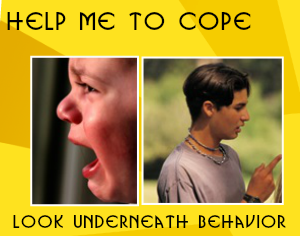 During this past month we’ve explored the way walls function in our lives to protect and defend us. It is important for us to know when to open these defenses and especially vital to teach our children these same skills.
During this past month we’ve explored the way walls function in our lives to protect and defend us. It is important for us to know when to open these defenses and especially vital to teach our children these same skills.
When we are in a moment of confrontation, we must resist the inclination to operate on a reactive level and tune in to our higher intentions to act with unconditional love. Remember, we all want to feel safe, secure, and valued. When we are not feeling one–or all of those–we default to a defensive posture that mirrors our children’s. So how do we interrupt that mirrored response and reconnect to our best intentions? What is most effective is modeling not lecturing.
1. Breathe. Concentrate on the inhalation and pause to focus on this interaction as a singular event, detached from any history. Resist going to the “Here we go again.” Fear can incline one to retaliate or become defensive. The better approach is to try to validate the child’s emotions/fears that are giving rise to his challenging behavior. Remaining calm helps to prevent escalation of the emotions. Our anger only serves to accelerate theirs and to make a bad situation worse.
2. Do a check-in with your own body. Notice the physical cues that emerge: clenched fists, nausea, sweating, racing heart, etc–all of these indicate that emotions are directing behavior not rationality. A physical stress reaction that connects with our own fear makes it difficult to be in unconditional love for our child. We fall into an old script and dance a familiar and painful dance that weakens attachment and deepens our child’s trauma. Choose instead, to be in the moment, to see this event as an opportunity to connect. Seek to identify and validate the trauma that is behind the behavior.
3. Commit to stay physically present–as long as there is no physical danger. Develop a “Teflon coating that insulates you from any verbal hand-grenades they may lob. Press the mute button to any nasty and insulting messages. Instead, tune yourself to the knowledge that this is their pain talking and that it is about THEM and not really about any shortcomings they are alleging about you. Our presence is a commitment to them and proves that we are there no matter what.
When emotions have cooled, there will be time for exploring the “teachable moments” and to make clear that we are committed to having a relationship where each of us has healthy boundaries that are respected and that we are dedicated to being a family. There is no easy fix. This process takes years and requires Practice, Practice, and Practice.


